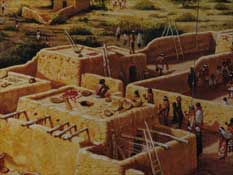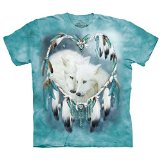People of the Legends
Indigenous People of North America - Papago (Tohono O'odham)
Ancestors and Relatives
Scientists think the Papago are related to the Pima tribe and they shared the same ancestor, the ancient Hohokam people. In the Pima language Hohokam means ‘those who have gone.’
 The Hohokam were irrigation farmers and desert experts who lived in the Sonoran Desert for more than a thousand years, from about 500 BCE until about 1500.
The Hohokam were irrigation farmers and desert experts who lived in the Sonoran Desert for more than a thousand years, from about 500 BCE until about 1500.
They built mud-brick villages and walled towns with ball-game courts and they made beautiful shell jewellery, pottery and baskets.
The Hohokam dug the largest system of irrigation canals in North America, taking water from rivers out to their farms. They were engineers and used the pull of gravity and locks, or water-gates, to control water moving through the canals. Archaeologists have found 300 miles of canals (482 kilometres) along the valley of the Salt River around Phoenix, and the city’s modern water supply still uses many Hohokam canals.
The bigger canals were 6 feet (1.82 metres) deep and more than 50 feet (15.24 metres) wide. The Hohokam had no machines, horses or earth-moving equipment. They used hand tools for digging and carried the soil away the soil in baskets they’d made. Building and maintaining the canal system must have been on-going work for the engineers and their teams.
 The Hohokam grew corn, squash, beans and cotton, and they gathered many wild plants including the fruit of several types of cactus which they picked using long poles.
The Hohokam grew corn, squash, beans and cotton, and they gathered many wild plants including the fruit of several types of cactus which they picked using long poles.
Scientists do not yet know why Hohokam culture ended, but they think the people became the Papago and Pima tribes. They spoke slightly different languages, but they were both desert farmers, living on the old Hohokam lands and they had similar customs and cultures.
The Pima may have given the Papago their name, which means “bean people” in the Pima language. Both tribes have now changed their names. The Papago are the Tohono O’odham, which means ‘desert people’ and the Pima are the Akimel O’odham. There are still close ties between them today.




